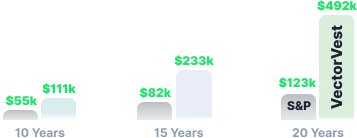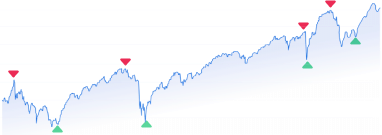In a recent turn of events, the inflation narrative has taken center stage, prompting a closer examination of its implications on Federal Reserve policy. Let’s delve into the intricacies of these developments and their potential ramifications.
The Commerce Department’s personal consumption expenditures (PCE) index revealed a notable uptick in consumer prices, registering a 2.7% year-over-year increase, surpassing the previous month’s figures. Concurrently, the core PCE inflation rate, excluding volatile food and energy items, held steady at 2.8%.
This unexpected surge in inflation metrics follows the Commerce Department’s upward revision of core PCE inflation for the first quarter, which exceeded economists’ projections. The revision, driven by an upward adjustment in January’s monthly increase, underscores the persistent inflationary pressures facing the economy.
Simultaneously, Meta’s announcement of a substantial $5 billion investment in AI technology has added another layer of uncertainty to the market landscape. Federal Reserve Chair Jerome Powell’s recent remarks suggest a departure from the central bank’s previous stance, acknowledging the sustained inflationary environment.
Despite an initial market rally in response to the latest inflation data, questions loom regarding the Fed’s policy trajectory. Speculation surrounding potential interest rate cuts has waned, with futures markets now pricing in only one rate decrease later in the year.
Furthermore, robust consumer spending trends, coupled with declining savings rates, underscore the delicate balance between economic expansion and inflation containment. While job growth and wage increases have bolstered purchasing power, households are grappling with mounting debt burdens and diminishing savings.
Looking ahead, the inflation outlook will remain a key determinant of the Fed’s policy decisions. A sustained moderation in inflation, possibly influenced by evolving labor market dynamics, could prompt the Fed to reassess its stance on interest rates in the coming months.
In conclusion, as inflationary pressures persist, the Fed faces the formidable task of navigating economic growth while maintaining price stability.
How Can VectorVest Help?
In the midst of these unfolding developments, VectorVest’s Market Timing system stands as a beacon of clarity amidst market uncertainty. While the noise of inflation concerns and economic shifts reverberates throughout financial circles, our Market Timing algorithm remains steadfast, ignoring the fluff and guiding our subscribers to make informed decisions. By focusing on data-driven analysis and objective indicators, we ensure that our subscribers stay on the right side of the market at all times. As we navigate these turbulent times together, trust VectorVest to provide you with the insights and strategies you need to thrive in the ever-changing world of investing.
Want These Types of Insights at Your Fingertips so You Can Win More Trades?
Use VectorVest to analyze any stock free. VectorVest is the only stock analysis tool and portfolio management system that analyzes, ranks and graphs over 18,000 stocks each day for value, safety, and timing and gives a clear buy, sell or hold rating on every stock, every day.
Before you invest, check VectorVest! Click here to ANALYZE ANY STOCK FREE and see our system in action!
What you should do next…
- Get our latest blogs delivered right to your inbox, subscribe to our newsletter.
- The market moves fast! Get our most current evaluation of this stock with our FREE stock analysis tool.
- Looking for stock picks? Not sure if now is the right time to buy/sell? For a limited time, enjoy the full benefits of a 30-day subscription to VectorVest for only [offer_txt] (usually up to [saving_txt]/month) . Get access to our full list of screeners showcasing our top stock picks that tell you exactly what to buy, when to buy, and when to sell.















